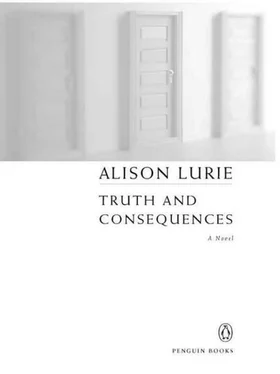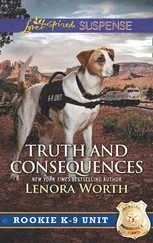“And did you go?”
“Yes, eventually, but I maybe shouldn’t have.” Jane sighed.
“If you’d stayed, would Alan have felt better?”
“Maybe. At least I could have made him lunch. Well, I did make him lunch, and left it in the fridge, but it’s not the same.”
“Uh-huh. They want us there when they want us there. And then when they don’t, they don’t.”
“Alan always wants me there,” Jane said. “But then he’s in pain all the time, not just now and then.”
“At least you always know what to expect,” Henry said. “I can never tell from one day to the next whether Delia will get a sick headache and everything will have to be canceled. She’ll be dressing to go out to dinner, and suddenly she’ll collapse and throw up, and I have to get on the phone to make excuses, and then go mop up the bathroom.”
“I thought she could tell when a headache was coming on,” Jane said.
“Not always.” Henry looked at her. “You think maybe her migraines aren’t real, but you’re wrong.”
“I didn’t say that—”
“But you thought it, I can tell. And it’s not true. When one hits, Delia’s in agony. She wouldn’t ever choose to lie for twenty-four hours in a dark room; she loves life too much.”
“Mm,” Jane said, ashamed but only partly convinced. The headaches may be real, she thought, but Delia uses them. Did that mean that Alan too used his pain? That he deliberately—But at that disloyal thought she felt a pang of acid guilt like heartburn.
“Her life hasn’t been easy,” Henry told her. “Bad things happened to her when she was a kid. Her parents were both drunks, and she saw things no kid should see.”
“Um,” Jane said, remembering Delia’s story “A Woman Made of Fire,” one of her most famous works. The language of this tale was so poetic and allusive that it had been hard for Jane to figure out what happened. But it seemed to be about a beautiful princess who is vaguely but horribly attacked in the forest at dusk by a man or monster with a burning torch. As a result she is both damaged and metamorphosed, burnt and transfigured. Afterward she goes to live alone in a tower by the sea. Her hair grows very long, and many men come to court her. They stand on the shore and call up to her, they sing and play musical instruments and recite poetry. She looks out of the window, but never lets down her long burnt-gold hair to them.
According to Lily Unger, this tale was supposed to be based on a traumatic event in Delia’s early adolescence, and the burning torch was really a flashlight. “When she was fifteen, sixteen, Delia was kind of a freak,” Lily had explained to Jane. “The other kids thought she acted superior, put on airs. She wore strange clothes, and she used to go out and walk in the woods after supper, talking to herself. So one evening some boys followed her into the woods, four or five of them.”
“Yes, I’ve heard that,” Jane said now.
“She was damaged,” Henry said. “It was a long time ago, but nothing can make it up to her.”
“But you try,” Jane suggested.
“Yeah. Sometimes.” Henry shrugged.
“It’s different for Alan,” she said. “His life has been pretty easy. Until he got ill, I mean. And it could be so much worse—I mean, he doesn’t have a fatal disease or anything like that.”
“Neither does Delia. But in a way that makes it harder. I remember when my father was terminally ill. Of course he was miserable, and my mother was totally wiped out. But they both knew that one day, maybe quite soon, it would all be over. For us, it could go on the rest of our lives.”
“Yes,” Jane admitted. “I’m afraid of that sometimes.”
Henry stirred his tea slowly. “I figure there’s no point in looking too far into the future. What we have to do is enjoy the world as much as we can right now. It doesn’t do anyone any good for us to give up things and be miserable.”
“I don’t know.” Jane laughed unhappily. “I mean, I’ve thought sometimes maybe it does. If Alan sees me enjoying myself he might feel worse because of the contrast.”
“Maybe,” Henry said. “But I don’t think it works that way. At least not with Delia. She wants me to be strong and well and happy, otherwise I might not be able to take care of her, or I might not want to. She doesn’t want me to get worn down or fed up. That’s odd. Why isn’t it ‘worn up’ and ‘fed down’?”
“I have no idea.” Jane laughed. “You sound like Bill Laird. He’s always looking sideways at words, turning them around in his mind.”
“I used to do a lot of that,” Henry said. He sat back and pushed his empty plate away. “You get in the habit.”
“Oh yes?” Jane looked at him, admiring his thick eyebrows, high color, and thoughtful meditative expression. “You mean when you were in advertising.”
“Yeah, and when I was a poet.”
“You were a poet? I never knew that.”
“I don’t admit to it very often. But I was. It was a long time ago, but I even won an award for it, and I published two books. They were mostly white space, though, because I was a minimalist.”
“Really? So why did you stop?”
“I didn’t exactly stop. My poems got shorter and shorter, and then they just sort of disappeared, and it was all white space.” He smiled and ran one hand around the collar of his denim shirt, as if it had suddenly become too tight.
“I’m sorry,” Jane told him. “But maybe you’ll start again sometime.”
“That’s what Delia always used to say. She got quite angry with me when I wouldn’t even try.”
“But that’s not fair,” Jane exclaimed in spite of her previous resolve. “It’s not the sort of thing you can just decide to do.”
“Depends on how you look at it.” He shrugged. “Wouldn’t you like me better if I were a poet?”
“No, why should I?” She laughed.
“Delia would.” His face darkened; he looked away from her, out of the window, which was beginning to blur with rain.
“Well, I like you just fine the way you are,” Jane said, feeling a rush of distaste for Henry’s wife. At least Alan never wants me to be something else, something I can’t be, she thought.
Henry turned back; he looked at her, then slowly smiled. “And I like you just fine the way you are,” he said, less casually.
Jane caught her breath; for a moment the whole room blurred like the rain-washed quadrangle outside. Something is happening, she thought. Alarmed, she tried to block it.
“I’m afraid Delia has the same sort of idea about Alan,” she said rapidly. “She’s convinced him he’s an artist; and now she’s convinced some friend of hers who owns a gallery in New York to show his pictures of ruins.”
“Yeah, she told me about that.”
“Of course Alan was very excited when he heard the news. Over the moon, he said himself. He didn’t say anything about his back for nearly a whole day. But I’m worried about the whole thing.”
“Worried?” Henry raised his eyebrows.
“You know, what people will think.”
“What’s that?” He smiled, but Jane did not.
“They’ll think Alan’s making fun of death and destruction.”
“Really? Do you think he is?”
“No, of course not. Alan would never do that. Anyhow he made most of those drawings long before September 11. But most people won’t know that. They’ll think it’s a joke about the World Trade Center, and they’ll get angry.”
“Is anyone angry at him now?”
“No,” Jane admitted. “But not many people have seen his drawings.” I’m angry, she realized. Not at the drawings, but at Delia, for charming and bullying her way into Alan’s life, making him jump over the moon like the stupid cow in the nursery rhyme, making him forget his pain, when I’ve been trying to do the same thing for a year and a half without success. It was so wrong, so unfair—It also was something she couldn’t complain to Henry about.
Читать дальше







![Кэмерон Доки - Правда и ее последствия[Truth and Consequences]](/books/79610/kemeron-doki-pravda-i-ee-posledstviya-truth-and-con-thumb.webp)




